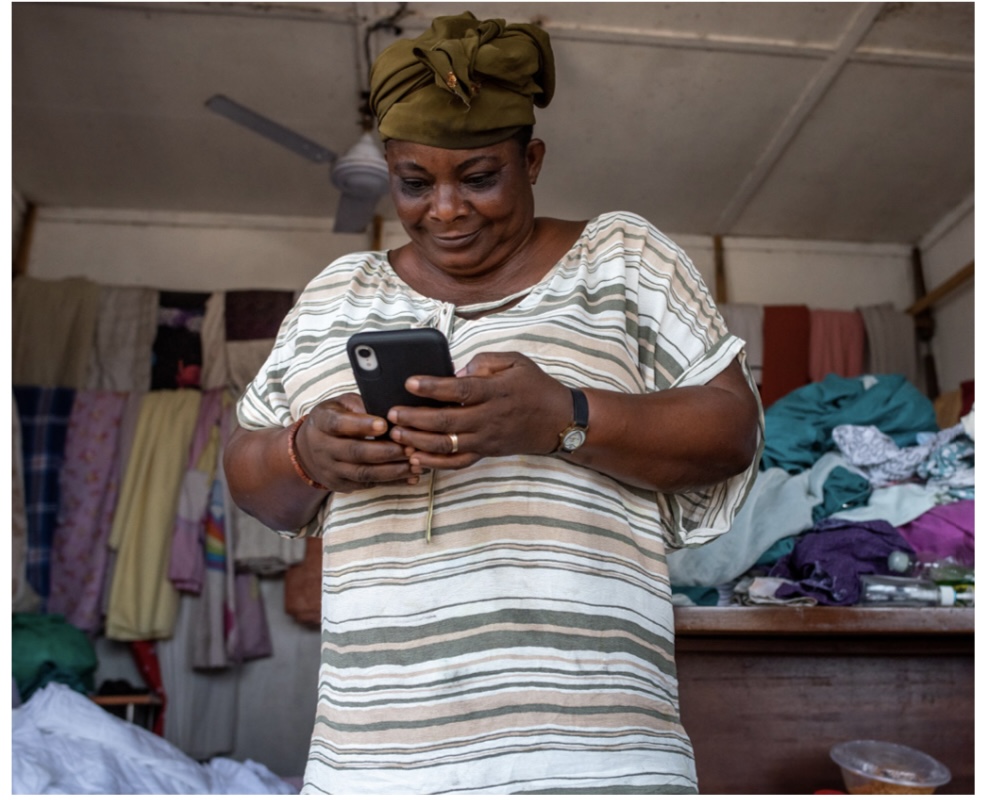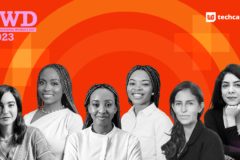Ghana has an ambitious digital policy that is set to make it a leading digital economy in Africa. However, the existing digital gender gap in the country may obstruct the achievement of the levels of digital literacy required for universal e-government service delivery.
In May, the Ghanaian parliament approved a $200 million loan agreement with the World Bank to help push Ghana’s Digital Acceleration Project. This project, slated to run till 2027, is part of Ghana’s larger digital economy policy. The project is aimed at increasing access to internet services for six million people by encouraging private sector investment in last-mile connectivity in underserved rural areas. The digital economy policy, launched in 2020 in collaboration with the World Bank, is hinged on five pillars: universal access and connectivity, digital skills, digital entrepreneurship and innovation, digital government, and data and emerging technologies.
Other objectives of the Digital Acceleration Project include accomplishing 1.5 million digital service transactions completed annually, as well as an 85% user satisfaction rate of its Ghana.GOV portal which was launched to provide a single point of access to all government services. Currently, Ghana ranks eighth on the list of digital leaders in Africa, and this Digital Acceleration Project is poised to take it even higher. However, while this ambitious project could improve the digital literacy and economic standing of the larger population, it currently faces a formidable obstacle: the digital gender gap.
Women are left behind
At an estimated 16.8 million, women make up an equal percentage (50%) of Ghana’s population, but that is where the gender equality ends. In Ghana, women earn, on average, less than one-third of what their male counterparts earn. This significant disparity has far-reaching effects, impacting women’s access to property ownership, including houses, and limiting their ability to possess items like smartphones, hindering their full participation in the country’s digital economy. This especially affects poorer women. According to a report by the United Nations on gender inequality in the digital space, only about 60% of Ghanaian women own smartphones, compared to 72% of men. The average cost of a smartphone is estimated to be $41, which translates to about a quarter of the average monthly income in the country.
According to a survey participant in a study done by GSM Association, respondents felt spending money on data for a smartphone sounded like a waste when there were other more pressing needs to be attended to.
“I cannot go and buy an expensive phone and also be paying for data when I need to provide food for my hungry children,” one participant shared.
Another factor that affects Ghanaian women’s ability to own smartphones is inadequate literacy and digital skills. According to findings from the GSMA study, at least three-quarters of women who do not use mobile internet services in Ghana only have a primary school education or less. This coincides with the national gender ratio for completion of senior high school in the country; 68 girls for every 100 boys. Additionally, more than one-third of the women surveyed who do not use mobile internet attribute insufficient skills as a barrier to being digitally included.
“I do not know how to use the phone to make calls properly, how much more using the internet and or even visiting these government websites you are talking of,” a survey participant responded when asked why she didn’t use the country’s official payments website.
“My education is limited and I cannot send or read messages. So I feel I may make a mistake and make the wrong payment, so I do not take the risk of making payment on an e-government platform, where I might lose my money and not get my refund,” another participant shared.
Potential solutions to lessening the gap
While the Ghanaian government has taken some steps to reduce digital illiteracy with the launch of digital literacy initiatives, these initiatives frequently target younger people with the aim of getting them into the formal sector. This neglects people in the informal economy—the majority of which are women—who make up the bulk of the country’s workforce. For literacy training to have a wider impact, women in the informal sector must be focused on, with training programs scaled across the country. An example is the ICT Skills for Entrepreneurial Women Empowerment (ISEWE) which has trained 15,000 artisans (including hairdressers, tailors, market women, and mechanics) and 720 female entrepreneurs in basic digital skills. But while such initiatives have recorded some success in improving digital literacy, beneficiaries are often unable to practise new skills beyond the training sessions due to a lack of device ownership.
Another way to lessen the digital gender gap is through financial inclusion. Ghana has made significant progress in promoting financial inclusion in recent years, but not for women. The country has one of the most mature mobile money markets in the world and has a financial inclusion rate of 68.2%, one of the highest in sub-Saharan Africa. Despite these impressive numbers, credit consumption remains appallingly low (only 13%), due to a lack of collateral and high interest rates on loans, which directly affect people in the informal economy.
Beyond giving women more control over their finances, financial inclusion can also give more women access to tools to expand their businesses and increase their purchasing power. Ghana has the highest number of female entrepreneurs in the world but the majority of them still operate at the small-scale level because they lack the resources and education to scale up. Financially empowering women puts them in better positions to participate more fully in the digital economy.
Unless the contributing factors behind the gender gap and digital exclusion, in general, are addressed, it will be impossible to drive large-scale adoption of e-government services. As the digital gender gap shrinks, Ghana’s digital economy policy will have a significant number of benefits for women.
To read the full report on Ghana’s e-Government services from GSMA, download it here.




















